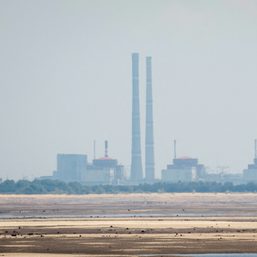SUMMARY
This is AI generated summarization, which may have errors. For context, always refer to the full article.

This year is on course to be 1 of the 3 warmest ever recorded and could even top the record set in 2016, the United Nations said Wednesday, December 2.
The past 6 years, 2015 to 2020, are set to make up all 6 of the hottest years since modern records began in 1850, the UN’s World Meteorological Organization said in its provisional 2020 State of the Global Climate report.

“2020 has, unfortunately, been yet another extraordinary year for our climate,” said WMO secretary-general Petteri Taalas.
The 2015 Paris Agreement on climate change calls for capping global warming at well below two degrees Celsius (ºC) above the the pre-industrial (1850-1900) level, while countries will pursue efforts to limit the increase to 1.5ºC.
“The average global temperature in 2020 is set to be about 1.2ºC above the pre-industrial level,” said Taalas.
“There is at least a 1 in 5 chance of it temporarily exceeding 1.5ºC by 2024.”
The WMO said 2020 seemed on course to be the second-hottest year ever – but the difference between the top 3 is small and the picture could change once this year’s data sets are complete.
The years from 2015 to 2020 are therefore individually “likely to be the 6 warmest on record,” the report said.
Temperature averages across the last 5 years, and across the last 10 year period, “are also the warmest on record,” it added.
Wildfires and flooding
In 2020, “we saw new extreme temperatures on land, sea and especially in the Arctic,” said Taalas.
“Wildfires consumed vast areas in Australia, Siberia, the US West Coast and South America, sending plumes of smoke circumnavigating the globe.
“Flooding in parts of Africa and southeast Asia led to massive population displacement and undermined food security for millions.”
Greenhouse gases in the atmosphere – the main driver of climate change – hit record highs last year and continued climbing in 2020 despite measures to halt the Covid-19 pandemic.
The annual impact of the coronavirus crisis was expected to be a drop of between 4.2% and 7.5% in carbon dioxide emissions.
However, CO2 remains in the atmosphere for centuries, meaning the effect of the pandemic is negligible.
Record warm years usually coincide with a strong El Nino effect in Pacific Ocean surface temperatures, as in 2016.
But this year’s opposite La Nina cool phase of the cycle has not been sufficient to keep this year’s heat in check – begging the question of how hot 2020 might have got without it.
The WMO said that more than 80% of the ocean area had experienced at least one marine heatwave so far in 2020.
“Sea level has increased throughout the altimeter record, but recently sea level has risen at a higher rate due partly to increased melting of ice sheets in Greenland and Antarctica,” the report said.
“In the Arctic, the annual minimum sea-ice extent was the second lowest on record and record low sea-ice extents were observed in the months of July and October.”
Hurricanes, Siberia sweltering
Meanwhile a record 30 named storms formed in the Atlantic Ocean, exhausting the alphabet and forcing a switch to the Greek alphabet for only the second time.
They included 13 hurricanes and 6 major hurricanes, which have maximum sustained winds of at least 178 kilometers (111 miles) per hour.
There were 12 land-falling storms in the continental United States, beating the previous record of 9 set in 1916.
2020 was an exceptionally warm year in most of Russia, especially Siberia. Across Russia, temperatures from January to August were 3.7ºC above average – 1.5ºC above the previous record set in 2007.
The heat in northern Siberia culminated in late June, when it reached 38ºC at Verkhoyansk on June 20, provisionally the highest known temperature anywhere north of the Arctic Circle.
Cuba had its hottest day ever on April 12, at 39.7ºC; Taipei on July 24 at 39.7ºC; and Jerusalem on September 4 at 42.7ºC.
Hamamatsu equalled Japan’s national record on August 17 with 41.1ºC.
The 2020 provisional State of the Global Climate report is based on temperature data from January to October.
The final 2020 report will be published in March 2021. – Rappler.com
Add a comment
How does this make you feel?










There are no comments yet. Add your comment to start the conversation.